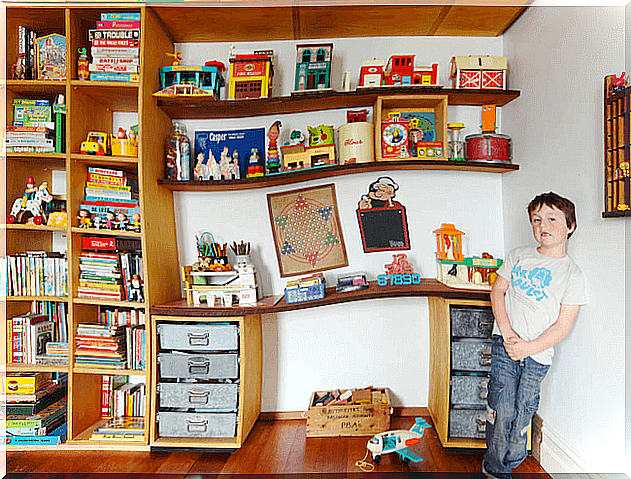How To Teach Children To Value What They Have?

When in our childhood we have suffered certain deficiencies, it is common to want our children not to go through the same thing. Thus, sometimes we make the mistake of giving them too many presents “so that nothing is missing.” However, it is necessary to help them understand the transience of the value of the material and teach them to value everything we have versus what we want.
It may happen that we go through a store, we buy them a beautiful toy, we take them with all our illusion (parents can be happier to see their astonished faces than children with the toy itself) and they do not give it the slightest importance to the gift.
They are still absorbed in what they were doing, probably with their mobile, tablet or computer. That can disappoint us in the first place. It can even make us feel sad because we have had to work hard to buy them that toy, which they have not known how to value.
When children have it all
Sure, they have a room full of things to play (even if they use a small part). In this way, it is very difficult for them to pay attention to something new or be grateful for the gesture. Today, many children are over-saturated with stimuli and, in this way, they no longer value what new comes to them. It is up to us, as adults, to teach them to recognize sacrifices and make them “earn” what they receive.
This does not mean that they have to go out to work when they are little, but it does mean to show them that in life, “nothing falls from the sky more than the rain.” So to get what they want, they are going to have to make an effort. It may sound a bit harsh for a school-age child, however, we will do them a big favor if we can get them to internalize it. Otherwise, if we always give them what they want, we will be teaching them that they have the right to get and have whatever they want, and if they don’t get it the good way, they could do it the hard way.
Many times we do not realize that our children are receiving everything without paying the slightest attention to their origin. They lack the concept of effort and how much it cost us to earn the money to buy it, in what way it is obtained, etc. For this reason, it is important to make an effort not to give the child everything that he asks for or everything that we would like. We run the risk of raising a “little emperor”.

As much as we are in a good economic position, we must not get used to having everything they want. We will never know the setbacks in life and if our economic possibilities will be as good in the future. Now, how to make them understand at that moment that you cannot (even if you want to) buy a new toy, a video game or a latest model mobile?
Teach children to value what they have
For the little ones to realize the price that things have (not in terms of money, but in matters of effort or setting priorities, for example) and not become a daily ordering machine, it would be good if:
They had a responsibility at home
From the age of three, the child can already participate in some of the household chores and assume some kind of responsibility, no matter how small. At the beginning, we are not going to let them order the glassware or clean the windows, but we will let them take the clean clothes to their room, for example. We can also leave them the responsibility of keeping your room tidy. In this way, we involve them in household chores and they are taught that at home things do not happen by magic, but that there is an effort behind it.
Gradually they can be assigned new tasks, suitable for the capacities they have already developed. But pay attention, the best thing to reinforce this type of behavior is not material rewards, but words and social recognition, so that they can feel proud.
Don’t buy everything they ask for
Advertisements in children’s spaces on television are designed to generate wishes in children. In fact, they present the toys as fantastic fun-generating gadgets. Finally, if you are going to give him a gift that corresponds to one of his wishes, it is better that you delay it a little in time. Although the ideal would be for the child to know that he has earned it through effort. In this way we will be teaching you the value of getting things done by your own means and not just by whim.
Take your time to “process the order.” Verify that it is something they really want and that it is not a whim of a toy that they saw on television or that a classmate has. Don’t try to show your love by buying them things. Do it as every parent should, that is, with time and love. Many children are infatuated with toys that they see and love immediately. Therefore, it is good to process what you ask for. Is it a whim? Have too many things? Although it sounds a little cold, children need to be set certain rules and get used to hearing “no” for an answer.
Stipulate a budget
When the children are a little older and have the ability to value price and money, they can talk about the costs of certain things they ask for. Let them help with money management and if you have the chance (and they deserve it), you can give them a regular pay to get used to managing their own limited resources.
Finally, do not make the mistake of saying “my children never lack anything.” Money or gifts are not what buy happiness or love. Remember that “where there is too much, something is absent. What is left over cannot be replaced with what is missing ”.









